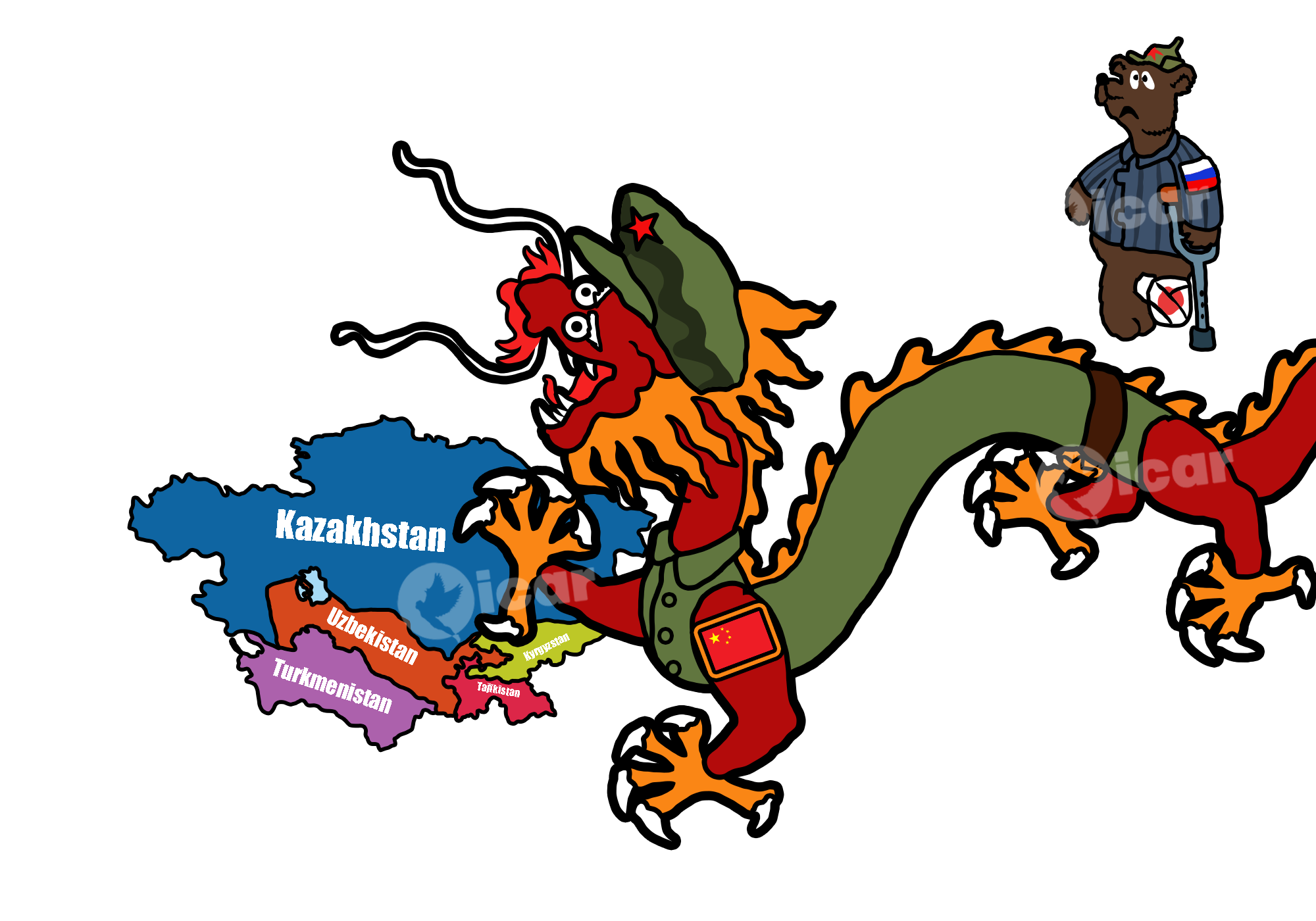
China Closes Central Asia for Russia
24/05/2023, 11:30
The creation of the С+C5 group by Beijing dissolves Russian influence in the new configuration of Eurasian geopolitics. The summit in Xinhua, where successful negotiations took place between the leaders of China, Uzbekistan, Kyrgyzstan, Kazakhstan, Turkmenistan, and Tajikistan, demonstrated new approaches in Xi Jinping's foreign policy course. Since 2013, China has cautiously awaited for a favourable moment when land transport corridors in Eurasia could be taken under its control without direct conflict with Moscow. Kremlin pretends that limiting its influence in Central Asia is a product of agreements with Chinese communists. Instead, it’s just a result of Russia being radically weakened by the war in Ukraine. However, the fact that no representative of the Russian authorities was invited to such a significant event testifies to the unambiguous symbolic signal Beijing sent to Moscow.
The Chinese government has voiced strategic security goals for stabilizing Central Asia: fighting against separatism, terrorism, and extremism. Formally, PRC representatives juggled rhetorics about the threat of "colour revolutions," which had some distracting effect on Russian authorities. However, in practice, it increasingly appears that the main terrorist and extremist in the region is considered to be Russia by default. Kazakhstan is actively banning Russian channels and any celebrations on May 9th, and Uzbekistan is finally switching to purchasing military equipment from China; one after another, all participants of the C+C5 refuse doing military trainings within the CSTO and evade settlements in rubles in the so-called Customs Union.
A powerful economic package backs the systematic expansion of the PRC in Central Asia. The mouthpiece of the Communist Party of China, the newspaper "People's Daily," claims that the total direct Chinese investments in the S5 group of countries reached $15 billion in 2022. According to the General Administration of Customs of the PRC, trade turnover with summit participants exceeded $70 billion last year. Xi Jinping also proposed expanding cross-border trade and announced the intention to allocate $3.8 billion in grant aid to the five friendly countries. The declaration signed on May 20th outlines a wide range of planned cooperation in 15 points for the coming decades. It is clear that China will protect its investments, tie the power structures of Central Asian countries with joint agreements, and is unlikely to allow Russia's return to the region in the foreseeable future.



